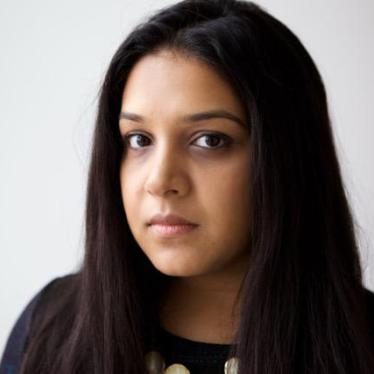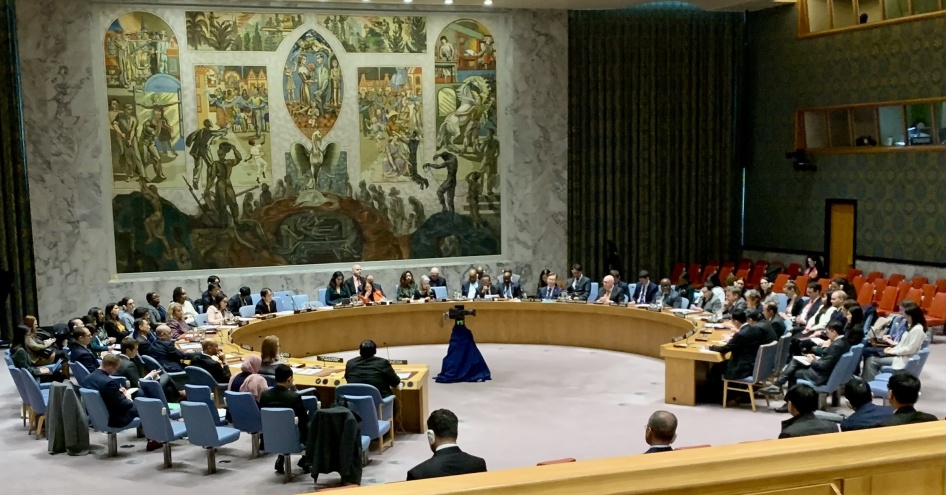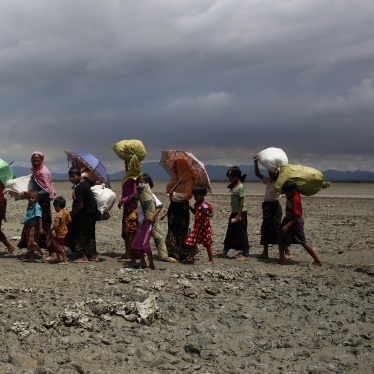The United Nations Security Council should mobilize to prevent further atrocities in Myanmar. The Council’s inaction over the last few months starkly contrasts with the clear warnings from senior UN officials who are urgently ringing alarm bells. As the Council is grappling with calls for reform, the current silence on Myanmar only deepens the sense that the Council can’t rise to the moment when it matters.
The UN special rapporteur on human rights in Myanmar warned in July that “the situation carries echoes of the lead-up to genocidal violence in 2016 and 2017.” In a rare joint statement, the UN special advisers on genocide prevention and the responsibility to protect urged the international community to undertake “joint efforts to reassess the crisis in Myanmar in the light of the significant developments that are unfolding and launch a robust coordinated effort.”
In the last few weeks, both the UN children’s agency, Unicef, and the UN’s acting resident coordinator in Myanmar have condemned attacks on civilians in Rakhine State.
The Council’s last open meeting on Myanmar was held in April. Britain is the “penholder” on Myanmar, which means it takes the lead on all statements or resolutions in the Council and bears unique responsibility to galvanize the members. The Council has allowed paralysis at the Association of Southeast Asian Nations (ASEAN) level around Myanmar to influence its approach, leading to paralysis at the international level too. The Council has also failed to follow up on its December 2022 resolution on Myanmar, the body’s first since the country’s independence in 1948.
In contrast, both the UN Human Rights Council and the UN General Assembly have adopted a series of stronger but nonbinding resolutions on Myanmar, including calls for an embargo on arms and jet fuel to the military junta. The crisis presents a key test for the UK’s new Labour government, which has claimed the mantle of “progressive realism” and defense of international law.
Progressive realism may promote engaging with regional blocs, but allowing regional paralysis to mute the Security Council amid atrocities certainly is neither progressive nor pragmatic.
Since the breakdown of an unofficial ceasefire between the Myanmar military and the ethnic Rakhine Arakan Army last November, Human Rights Watch has been warning that the ethnic Rohingya population, which was already marginalized, faced even greater risks. The Rohingya have been subjected for years to movement restrictions, mass detention, denial of medical care persecution and apartheid.
The recent violence has included the killing of nearly 200 Rohingya civilians on the banks of the Naf River. They were attempting to escape hostilities after monthlong Arakan Army attacks on Rohingya villages and neighborhoods. Satellite imagery and thermal anomaly data analyzed by Human Rights Watch reveal that more than 40 villages and hamlets in Buthidaung township were partly or completely destroyed by fire from April 24 to May 21.
The Myanmar military has been stoking tensions between the Rakhine Buddhist and Rohingya Muslim communities for years, most recently through the unlawful recruitment of Rohingya men and boys, triggering heightened hate speech and misinformation.
These divisive tactics were previously used during the ethnic cleansing against the Rohingya in 2012. The community’s vulnerability was then deepened by the military junta’s 2017 scorched-earth campaign, rampant sexual violence and genocidal acts, which left villages burned to ash as several hundred thousand people fled to Bangladesh.
More than 327,000 Rohingya have been newly displaced across Rakhine State since fighting resumed in late 2023, bringing the overall number of displaced people to well over a half a million. The UN Office for the Coordination of Humanitarian Affairs estimates that 400,000 people are experiencing “food gaps” in Rakhine State with cross-border supplies limited because of the conflict.
Members of the military junta, the Arakan Army and other armed groups could also face scrutiny by the prosecutor of the International Criminal Court (ICC) for alleged crimes amid the current conflict committed in Bangladesh, such as forced recruitment and deportation of Rohingya.
The court is investigating the situation, but its jurisdiction is limited to crimes committed, at least in part, in Bangladesh, an ICC member country, or on the territory of any other member of the court. The Security Council should expand the court’s jurisdiction by referring the situation in Myanmar, which is not an ICC member country, to the court.
Recent events also underscore the blatant disregard of the provisional measures ordered by International Court of Justice in the ongoing case brought by Gambia against Myanmar. The provisional measures are binding, and the Council should play a role in enforcing them. In a June report, the UN high commissioner for human rights found that “actions taken by all parties that endanger the Rohingya appear inconsistent with the provisional measures ordered by the International Court of Justice.”
Article 94(2) of the UN Charter makes clear that parties to disputes may take recourse to the Security Council if their opponent fails to “perform obligations incumbent upon it under a judgment rendered by the Court.”
The Council’s great-power deadlock means that it has been far too quiet on Myanmar for years. But if it chooses to let recent events pass without even a meeting or public show of concern, that neglect will stain the legacy of every ambassador sitting on the Council, particularly the UK, which is supposed to “lead” on Myanmar.









